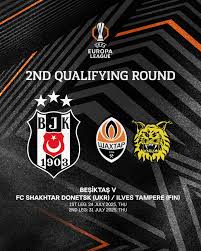
Introduction
Shakhtar Donetsk, one of Ukraine’s most successful football clubs, has stood at the forefront of Ukrainian football, showcasing remarkable talent and resilience. The team, founded in 1936, has garnered multiple domestic and international titles, making it a cornerstone in the football landscape of Eastern Europe. With the ongoing conflicts in Ukraine, Shakhtar’s situation has become increasingly precarious, drawing significant attention from fans and analysts alike.
Recent Achievements and Challenges
As of 2023, Shakhtar Donetsk has won the Ukrainian Premier League 14 times and has a notable history in European competitions, including their triumphant victory in the UEFA Cup in 2009. This year, under the management of Igor Jovicevic, the club has been striving to reclaim their former glory amid turbulent circumstances, including the ongoing war in Ukraine that has necessitated relocating their matches to the western part of the country and even abroad.
Despite these challenges, Shakhtar has shown impressive performance in the domestic league, maintaining a competitive edge against rivals such as Dynamo Kyiv and Dnipro-1. The club’s commitment to nurturing young talent has also been evident, with many players gaining international attention.
Support and Adaptation
The support from fans and the broader football community has been crucial in helping Shakhtar navigate these tough times. Fundraising efforts and international friendlies have been pivotal, bringing in much-needed funds for both the club and humanitarian efforts stemming from the ongoing conflict. Notably, Shakhtar has initiated various support programs, helping displaced people and those affected by the war.
Looking Ahead
As Shakhtar Donetsk prepares for the next season, there’s cautious optimism surrounding the team’s potential to compete both domestically and in Europe. With robust youth development programmes and strategic player acquisitions, the club aims to rebuild stronger than ever. The resilience displayed by Shakhtar is a testament to the enduring spirit of Ukrainian football, which remains a beacon of hope for many amidst adversity.
Conclusion
Shakhtar Donetsk’s journey reflects the broader narrative of resilience and determination in the face of challenges. As they continue to compete at high levels despite significant upheaval, their story serves as a powerful reminder of the role that sport can play in uniting people and communities. For fans, stakeholders, and the football community, supporting Shakhtar goes beyond sport – it represents solidarity in a time of need.
You may also like

Stenhousemuir v Falkirk: A Crucial Clash in the League

Jack Willis: The Rising Star of English Rugby

The Rise of Harvey Elliott in Football
SEARCH
LAST NEWS
- Remembering Wendy Richard: The Promise to Co-Star Natalie Cassidy
- How Did Anglian Water Achieve an ‘Essentials’ Rating for Mental Health Accessibility?
- Shai Hope Leads West Indies in T20 World Cup Clash Against South Africa
- What We Know About Weston McKennie: Future at Juventus and Past at Leeds
- What We Know About the Upcoming Live Nation Antitrust Trial